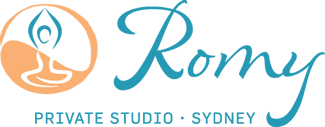FAQs
FAQs Yoga
Yes. Iyengar yoga is highly individualised using many props to help each person. If you are not very flexible, the yoga will help you relieve a lot of tension in your system.
It really depends on the injury. Romy invites each participant to a complimentary 15 minute session to identify issues and ascertain whether classes will be suitable. In many instances they are.
Romy’s classes are very small, with a maximum of 6 people in each class. Each person is made to feel very comfortable as an individual. We recommend you try one class and see how you feel. We strongly believe the support and care we offer will immediately make you feel at home. Each person is honoured as an individual in Romy’s classes.
Yes. Iyengar yoga is a strong yoga and when done correctly will assist with weight loss and toning.
Yoga with props alleviates the body of muscular tension. It also integrates and tones all muscles so that you move lightly without placing pressure on the body. Alignment is a major focus in the yoga, allowing strength and stability. Regular practise will improve vitality, fitness and well-being.
- Private sessions focus on the individual specifically.
- If there are problematic areas, they will be worked on specifically.
- An individualised home practise will be provided to ensure that progress is attained, and healing occurs.
- Some people do not like classes and simply prefer private sessions
- A private session incorporates the person, providing deep access to the person’s individualised obstacles. Progress is often exponential.
- Classes are also excellent and individualised, but not to the same extent as private sessions. Some people like to do a mixture of both.
Note: If a person has significant injuries, we may recommend private sessions for optimum care. Each individual is assessed carefully prior to commencement.
FAQs Meditation
Meditation is not about stopping the thinking mind. This is a common misnomer. Nobody can stop their mind from thinking, it’s a human attribute. In meditation we learn how to cultivate attention, and if our mind wanders off, we simply bring it back to what we are placing out attention on. The more we notice our mind wander and bring it back, the better we get at harnessing our attention. This is the process of meditation. As we get gaps in our thinking, we experience deep relaxation in those gaps.
One of the greatest benefits of meditation is that it gives the brain a rest and therefore leads to greater clarity and efficiency. So, people who meditate often need less time to get things done.
Meditation accesses different brainwaves that induce blissful and relaxed states.
Meditation when sitting is cultivating attention when you command that of your mind, not only when it just happens. This helps us reach peaceful states during all phases of life, i.e. during easy times and difficult times.
